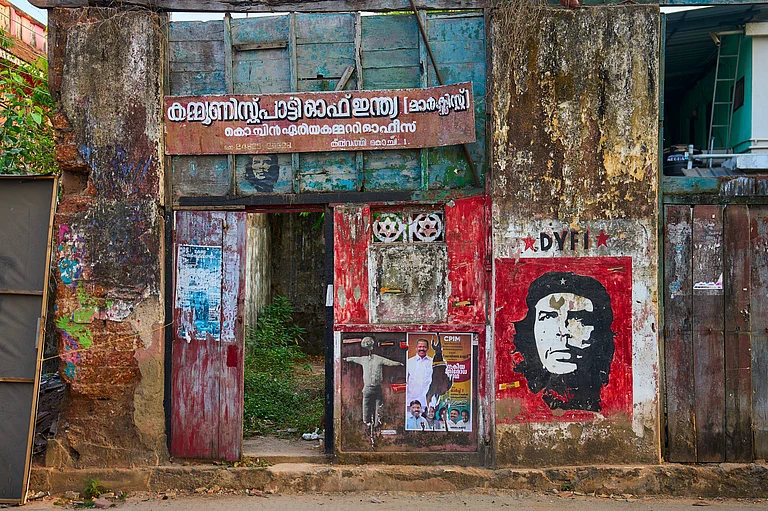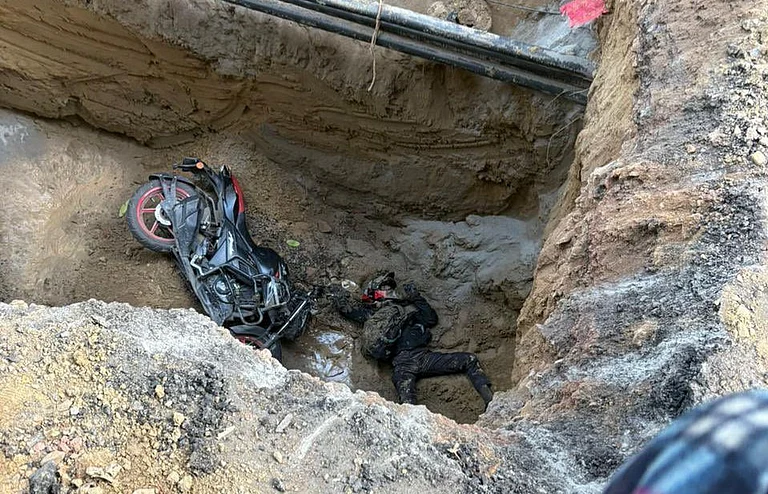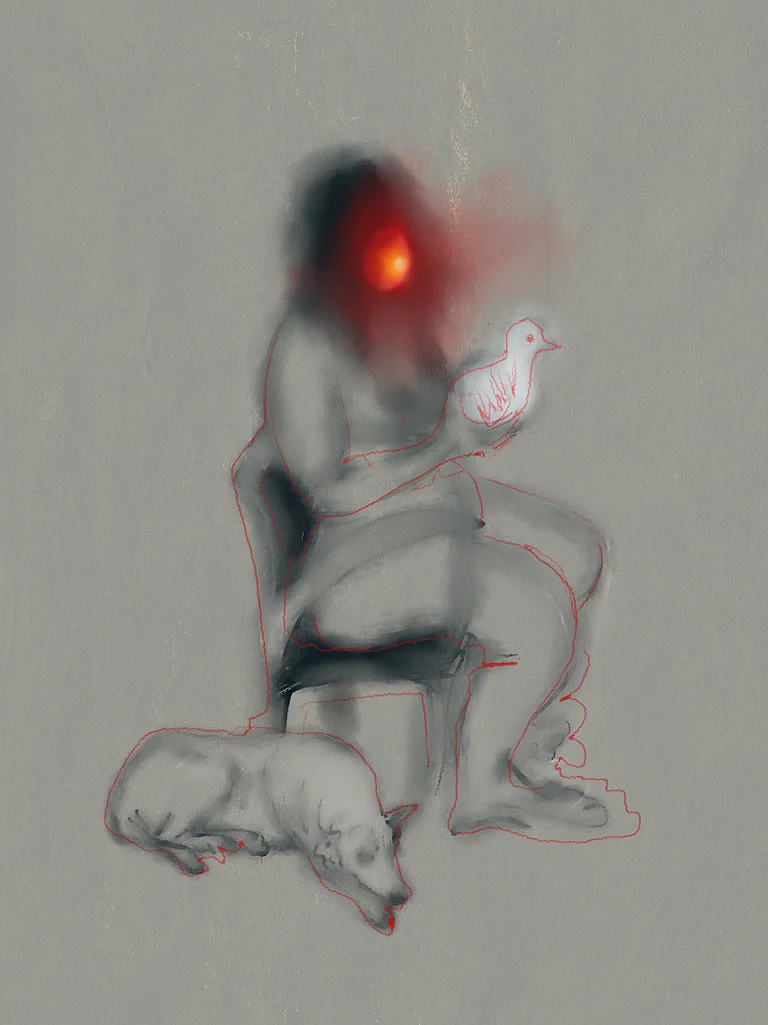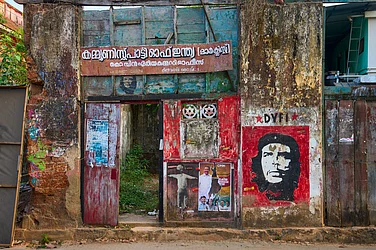The birth of Telangana as India’s 29th state in 2014 signified the culmination of years-long agitation led by students and women for equal access to resources and employment opportunities. They pinned their hopes and dreams of a better future onto the then-Telangana Rashtra Samithi (TRS) party. Almost a decade later, the same students and women who were at the forefront of the agitation continue to face legal cases against them, fight for women’s representation and demand employment opportunities.
The primary reason the people of Telangana and its Chief Minister K Chandrashekar Rao pressed for a separate state was that they felt largely neglected in comparison to people from the better-developed Andhra region. This neglect doesn’t seem to have faded. Those who were once avid followers of KCR are now protesting against his unfulfilled promises.
Student activists: Reopened cases, fight for jobs
The Osmania University in Hyderabad was the epicentre of large-scale student-led protests that eventually led to the formation of Telangana as a separate state in 2014. Situated in the heart of Hyderabad in Amberpet, the university has a sprawling campus of over 1,300 acres. Large-scale student protests broke out after 2009. The idea of a separate state and what that would mean for the youth of Telangana was extensively discussed and deliberated across the four walls of the campus. But Andhra Pradesh had launched a brutal crackdown on the students, deploying lathi-charge on them, shoving them into buses and lodging cases of unlawful protests against them.
Once Telangana state was formed, KCR had promised that all cases against students who were involved in the statehood protests would be dropped. But in 2018, a Government Order (GO) accorded sanction to prosecute seven persons against whom a police case was registered during the Telangana agitation in 2013.
These cases were originally registered against the student leaders of various far-left organisations for allegedly putting up around 200 inflammatory posters at various places in the university, including the hostel. The posters had an image of a person holding a rifle and urged the students to take up the path of armed struggle to realise the separate state of Telangana and that only militant struggle will scare away the people belonging to Andhra Pradesh.
The OU Police Station had then booked these students under different criminal charges. Kota Sreenivas, state president of Telangana Vidyarthi Sangam (TVS), had claimed that the Telangana government is being partial in revoking all cases against students as promised. “Just because a section of students have been criticising the government for its poor functioning and its policies like passing the Private Universities bill, we are being targeted and the cases against us have been reopened,” he said.
Kancharla Badri, a PhD scholar from Osmania University, recalls how he fought for Telangana state for around a decade prior to 2014. “And for another decade after the formation of Telangana, Osmania University JAC student organisations continued to fight against government policies that were against the people,” he says. During the Telangana statehood movement, several cases were also filed against Badri. Almost nine years later, 2-3 of those cases are still running in court.
The Telangana police also filed cases under UAPA charges against Badri. “The police claim I was raising funds for Maoists and that I had Maoist literature with me. All of this is false. But I was in Khammam jail for eight months in 2020,” he says. It heavily impacted his career and education. Now on bail, Badri says his demand stays the same, like most youth in the state. Everyone in Telangana should have equal access to opportunities, be it educational or basic resources. “We are still going to fight for this as a student group.” Badri, however, has now joined the BRS party and is seeking to fulfil this demand by being a part of the political party.
The demand to fill up government jobs in the state has taken centre stage ahead of the assembly elections later this month. This was one of the key reasons why a separate state of Telangana was formed – so that natives of the state had equal access to job opportunities. However, as per the Biswal Committee report of 2021, around 1.91 lakh state government positions have been lying unfilled since 2015. “This means over three lakh government job aspirants, who have been sitting for these exams that have repeatedly been postponed and cancelled due to administrative failures, are losing out on their careers and life,” says Sindhuja Reddy, a government job aspirant.
Student activist Bala Lakshmi, who was one of the few women leaders to emerge from the Telangana movement, reiterates that many students sacrificed their lives in support of KCR and Telangana during the movement in the hope that the coming generation would have better employment opportunities. Lakshmi is seeking a ticket from Jangaon this time as part of the Congress party.
In fact, among the election-bound states, Telangana (15.1) has a youth unemployment rate that exceeds the national average, as per the 2022-23 Periodic Labour Force Survey. But student leaders like Badri, Sreenivas and Bala Lakshmi are seeking to contest in the upcoming assembly elections from different political parties to lead the fight against unemployment from the political and decision-making front.
Women’s representation
When historians and activists talk of Telangana movement, the fight by women like K Kavitha, daughter of Telangana Rashtra Samithi leader K Chandrasekhara Rao (KCR), Chityala Ailamma (or Chakali Ailamma), Kamalamma, Regalla Acchamamba and several others, is always recalled.
In fact, BJP, Congress and BRS hailed the passing of the Women’s Reservation Bill in the Parliament recently. However, the representation of women in the political space of the state has been largely missing.
During the last assembly elections in the state in 2018, only six women made it to the assembly, out of the 136 women who contested.
Ahead of this year’s polls, parties were expected to field more women candidates in their lists. However, out of the 115 candidates announced by the BRS, only seven tickets were allotted to women candidates. Eleven of the Congress party’s 100 candidates declared so far in Telangana are women. Thirteen of BJP’s 88 candidates declared so far are women.
K Kavitha of BRS was also at the forefront of the movement demanding passage of the women's reservation bill. When asked about the representation of women in BRS’ lists, she told Outlook, “I've consistently emphasised, including within my own party, that without the implementation of the Women's Reservation Bill, parties won't prioritise women's representation in ticket allotments. The urgency to enact the bill cannot be overstated.”
With assembly elections approaching in less than a month, it remains to be seen whether the dreams and hopes of those who fought for Telangana nine years ago will be fulfilled this time.


























